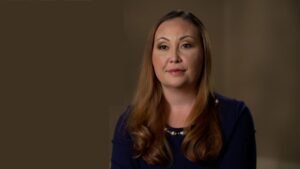Strategies for Paying Off Debt and Becoming Debt-Free
Create a Debt Repayment Plan: The first step towards paying off debt is to create a comprehensive debt repayment plan. Start by listing all your debts, including the outstanding balance, interest rates, and minimum monthly payments. Prioritize your debts based on the interest rate or the debt snowball method (paying off the smallest debts first). Set a realistic timeline for paying off each debt and allocate a certain amount of your monthly income towards debt repayment. Trim Expenses and Increase Income: To accelerate your debt repayment journey, consider trimming unnecessary expenses from your budget. Identify areas where you can cut back, such as eating out, entertainment, or subscriptions. Redirect those savings towards debt payments.
Additionally, explore ways to increase your income, such as taking on a side gig or freelancing. The extra money earned can be used to make larger debt payments and expedite the payoff process. Utilize the Debt Avalanche Method: The debt avalanche method involves focusing on paying off debts with the highest interest rates first while making minimum payments on other debts. By tackling high-interest debts, you can save money on interest payments over time. Once you pay off a high-interest debt, redirect the funds towards the next debt on your list.
This method helps you optimize your debt repayment strategy and potentially save more money in the long run. Consider Debt Consolidation: If you have multiple high-interest debts, consolidating them into a single loan or balance transfer credit card with a lower interest rate can be a viable option. Debt consolidation simplifies your repayment process and may reduce the overall interest you pay. However, it’s essential to carefully research and compare offers to ensure that the consolidation option you choose is truly advantageous.
Negotiate with Creditors: Don’t hesitate to reach out to your creditors and negotiate more favorable terms. Sometimes, creditors are willing to lower interest rates, waive fees, or offer a repayment plan that better suits your financial situation. Effective communication and demonstrating your commitment to paying off the debt can open up opportunities for negotiation and potentially make your debt more manageable.
Seek Professional Assistance: If your debt situation feels overwhelming or you need expert guidance, consider reaching out to a credit counseling agency or a reputable financial advisor. They can assess your financial situation, provide personalized advice, and help you create a realistic debt repayment plan. These professionals can also offer insights into managing your finances effectively and preventing future debt.
Becoming debt-free is an achievable goal with the right strategies and dedication. By creating a solid debt repayment plan, trimming expenses, increasing income, utilizing methods like debt avalanche, exploring consolidation options, and seeking professional assistance when needed, you can regain control of your finances. Remember, the journey to debt freedom requires discipline and patience, but the rewards of financial independence and peace of mind are well worth the effort.


































